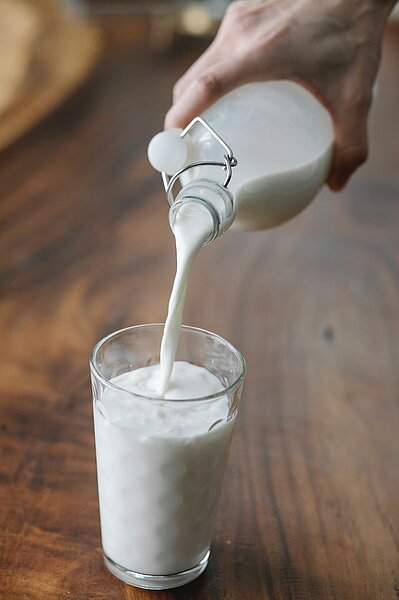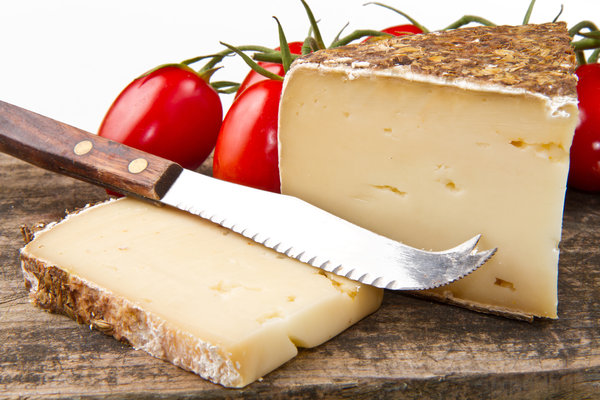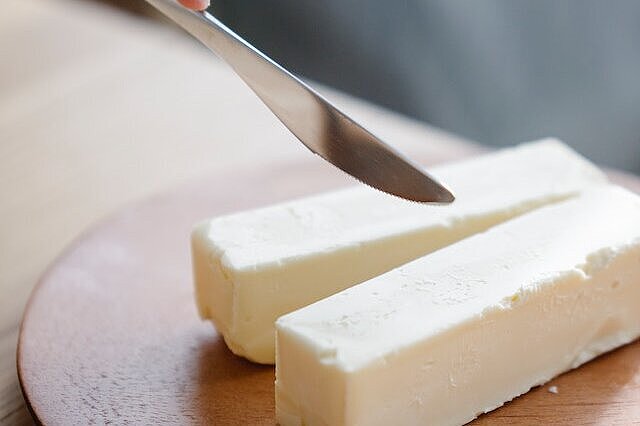Milk

Milk is a popular drink for many people, but what about dogs? Can dogs drink milk or is it harmful for them? In this article, you'll find out what milk is, what the advantages and disadvantages are for dogs and what you should look out for if you want to give your dog milk.
What is milk?
Milk is a white liquid produced by mammals to feed their young. Milk contains many nutrients, such as protein, fat, carbohydrates, vitamins and minerals, which are important for growth and development. The best known milk is cow's milk, which is also used for many foods such as cheese, yoghurt and butter. However, there are also other types of milk, such as goat's milk, sheep's milk or horse's milk, which have different properties depending on their origin and processing.
What are the benefits of milk for dogs?
Milk can be a welcome change to a dog's daily diet. It can be given as a treat, as a reward or as a supplement to food. Milk can also help with certain ailments, such as gastrointestinal problems, where it soothes the mucous membranes, or dry skin, where it moisturizes. Milk can also strengthen bones and teeth, as it contains a lot of calcium, which is important for bone formation and dental health.
What are the disadvantages of milk for dogs?
However, milk is not equally suitable for every dog. Many dogs do not tolerate milk well as they cannot digest the milk sugar (lactose) or can only digest it poorly. This is because they produce less or no lactase enzyme, which is necessary for the breakdown of lactose, as they get older. If dogs drink milk that they cannot tolerate, they can develop digestive problems such as diarrhea, vomiting or flatulence. In addition, milk can trigger an allergy in some dogs, which can manifest itself as itching, skin inflammation or breathing difficulties. This is due to the protein (casein) contained in milk or cheese.
What should you look out for if you want to give your dog milk?
If you want to give your dog milk, there are a few things you should bear in mind so as not to cause him any harm. Here are some tips for you:
- First test whether your dog can tolerate milk by giving him one tablespoon a day. Observe whether or not he shows any discomfort afterwards. If he has no problems, you can slowly increase the amount, but not more than 20 milliliters per kilogram of body weight per day.
- Choose a type of milk that contains as little lactose and casein as possible, such as goat's milk or lactose-free milk. These are usually better tolerated than cow's milk. Also avoid dairy products that contain a lot of sugar, fat or additives, such as chocolate milk, cream or ice cream.
- Only give your dog milk as a supplement and not as the main food. Milk alone does not meet your dog's nutritional needs and can lead to deficiency symptoms or obesity. Milk should only ever make up a small part of your dog's daily calorie intake. Make sure that you subtract the amount of milk from the amount of food to avoid overfeeding.
- Always offer your dog fresh water when you give him milk. Water is the most important drink for dogs and helps to maintain fluid balance and aid digestion.
Milk is not poisonous for dogs, but it is not necessary either. It can be given in small quantities as a treat or supplement if the dog can tolerate it. Otherwise it can lead to digestive problems or allergies. Choose a type of milk that is low in lactose and casein, give your dog only a small amount and always offer him water.
Properties 7
Are you looking for other ingredients with a specific property?
Just click on them to find more.
If you notice any signs of hypersensitivity or poisoning in your dog, you should see your vet immediately. We are not a substitute for a vet, but we try to be as accurate as possible. Every dog reacts differently and we recommend you get a second opinion or consult your vet if in doubt.
Stay healthy and take good care of your four-legged friend!😊
Similar to Milk
Lactose is a so-called disaccharide, i.e. it consists of two simple sugars: glucose and galactose. In order to digest lactose, the body needs the enzyme lactase, which splits the lactose into its...
Cheese is a dairy product that coagulates through the addition of rennet or other enzymes. This produces a solid mass, the curd, and a liquid, the whey. The curd is further processed by pressing,...
Yoghurt is a dairy product made by fermenting milk with certain bacterial cultures. This converts the lactose, i.e. the milk sugar, into lactic acid. This gives yogurt its typical taste and creamy...
Butter is a fat that is made from the cream of cow's milk. The fat droplets are combined into a solid mass by beating or churning the cream. The remaining liquid is called buttermilk. Butter has a...



